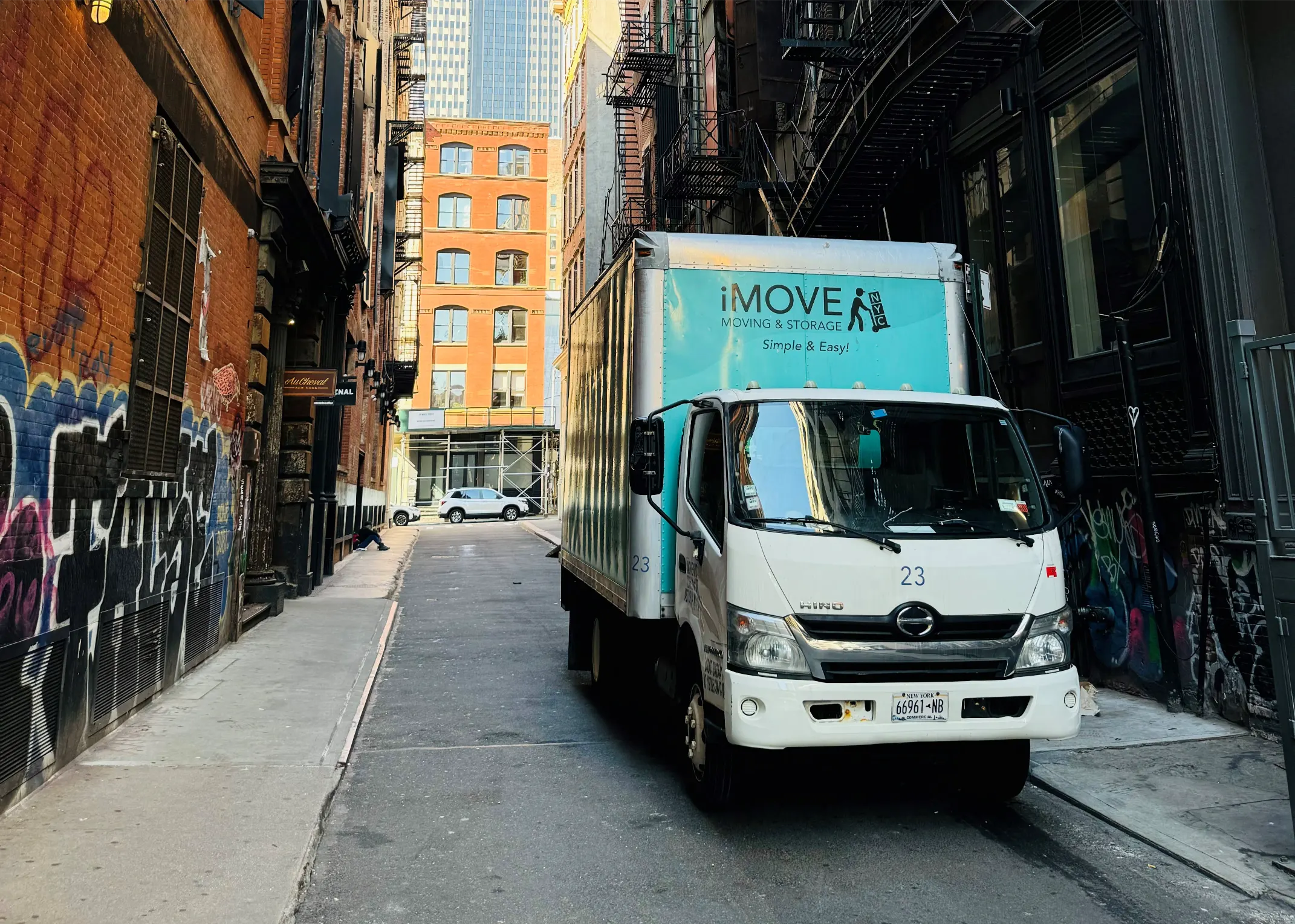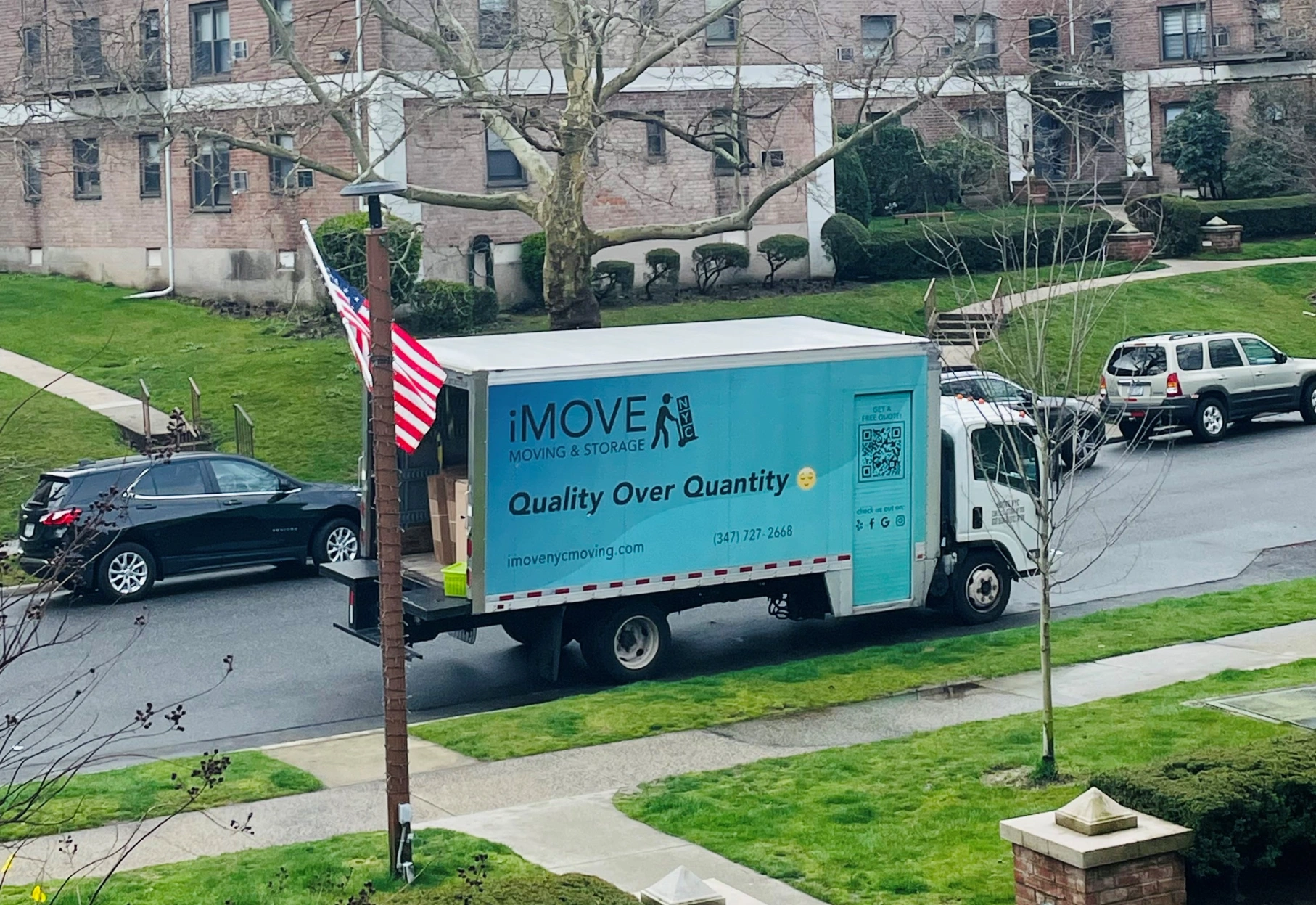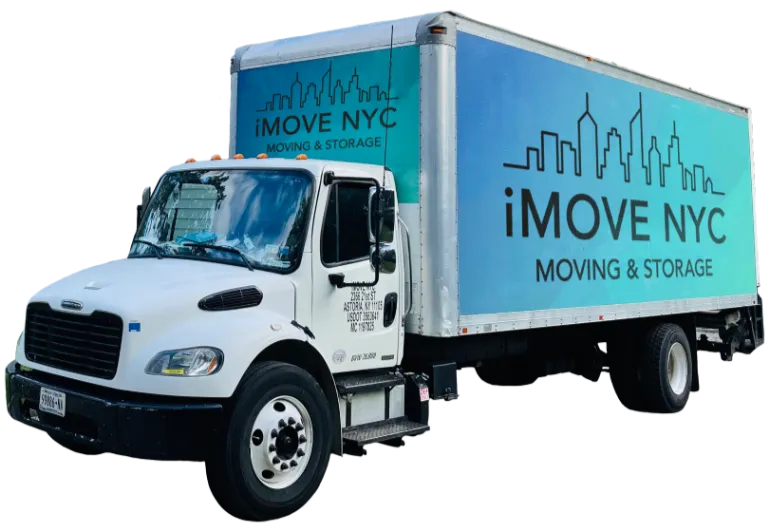
Moving to NYC as a Student in 2025: The Complete Parents’ Guide
New York City stands as one of the most exhilarating and enriching destinations for students – both from across the U.S. and around the globe.
Fill out the form below for a quick flat price quote
Moving to a new state can be an incredibly exciting time in your life. Whether you’re relocating to be closer to family, starting a new job, or looking for a lower cost of living, the change brings new opportunities. However, even with the excitement, the process can feel overwhelming. Finding a new home, managing logistics, and packing up your life take considerable time and effort, especially when crossing state lines. It’s a major transition that requires careful planning to ensure a smooth adjustment to your new environment.
When you move within the same city, there are often legal requirements to update your information, such as reporting a change of residence address within 10 days in NYC. But moving to another state is an entirely different process, with new state laws and regulations that you’ll need to comply with. Adjusting to a new state’s legal landscape means more than just updating your address—it involves understanding and fulfilling legal requirements in areas like vehicle registration, tax obligations, and voter registration.
This blog post will outline essential things to do when you move to a new state, guiding you through crucial steps to help you stay compliant and avoid unnecessary hassles before and immediately after your move.
Moving to a new state requires more than just physical relocation – it involves adapting to different legal obligations and local regulations. Being prepared for these legal things when moving to a new state is crucial for a smooth transition and avoiding potential penalties. From establishing residency to updating important documents like your driver’s license and voter registration, knowing what to prioritize can save you time and hassle. Here are key steps to ensure you’re fully prepared for the legal aspects of your move.
To ensure compliance with tax laws, you must establish legal residency in your new state. This usually involves proving that you live there permanently, such as by providing a new address and transferring your driver’s license. Without this, you may owe taxes in multiple states. Each state has specific criteria for residency, so review your new state’s requirements. Additionally, you may need to update your voter registration and tax filing status.
Obtaining a new driver’s license is one of the first legal tasks you should complete. Many states mandate that new residents update their licenses within 30 to 90 days of relocating. You’ll likely need your current license, proof of identity (such as a passport or Social Security number), and proof of residency. Failing to meet the deadline can result in fines or complications, so check your state’s DMV website for exact guidelines. Make sure to schedule an appointment in advance to avoid delays.
Registering your vehicle in your new state is crucial, and you may need to update your auto insurance first, as most states require proof of insurance for registration. Additionally, some states have different minimum insurance requirements, so check whether your current policy meets the new state’s regulations. The process typically requires proof of insurance, proof of residency, and vehicle ownership documents. Some states may also require an emissions or safety inspection before you can register your vehicle.
Don’t forget to update your voter registration to participate in upcoming elections, especially with the November election approaching. Many states allow online registration or in-person registration at the DMV or local election office. Deadlines can vary significantly, so check your new state’s voter registration requirements. Failing to update your registration can affect your ability to vote and could lead to confusion on election day.
If you have pets, you may need to register them with the local county or city where you’re moving. Registration usually confirms that your pet is up-to-date on rabies vaccinations and other required immunizations. Requirements and deadlines vary by state, so verify this information ahead of time. Some municipalities also require pet licenses, so check local regulations to ensure compliance.
If you’re moving with children, you’ll need to notify their current school and arrange to transfer school records to their new school. This may include transcripts, medical records, and letters of recommendation. Proof of residency is often required for enrollment, so make sure you have that prepared. Be proactive about gathering these documents to avoid delays in your child’s education.
Before you move, visit your current healthcare providers to obtain copies of your medical records. These documents will be essential when registering with the healthcare providers in your new state. It’s also a good idea to ask for referrals to doctors in your new area to ensure a smooth transition of care, especially for ongoing treatments or prescriptions.
When moving to a new state, understanding the differences between federal and state laws is crucial. While federal laws apply nationwide, state laws can vary significantly and impact several aspects of daily life. Here are some key areas where state-specific legal requirements may affect you:
Gun laws differ widely across the U.S., with some states implementing strict regulations while others have more lenient rules. In certain states, gun ownership involves comprehensive background checks, waiting periods, and limitations on the number of firearms an individual can own. Additionally, you may encounter specific rules around firearm registration, safe storage, and concealed carry permits. It’s essential to understand your new state’s stance on firearm laws, including any restrictions on firearm accessories, magazine capacity, and the types of firearms permitted, to ensure compliance before relocating.
Cannabis regulations also vary significantly. While some states have legalized marijuana for both medical and recreational use, others permit only medicinal use, and a few still classify it as illegal. If you use cannabis, knowing the laws in your new state is essential to avoid legal complications. Additionally, consider rules around where you can legally purchase, use, or cultivate cannabis, as these too can differ widely.
State tax regulations encompass a range of taxes, including income, property, and sales tax, which can significantly differ depending on where you move. Some states, such as Florida and Texas, do not have a state income tax, while others, like California, impose higher tax rates on higher income brackets. States like Colorado feature a flat income tax rate, which remains consistent across all income levels. Understanding these differences is crucial for financial planning when moving to a new state.
Sales and property tax rates also vary widely, affecting daily expenses and homeownership costs. For example, Oregon has no sales tax, while other states impose sales tax rates exceeding 7%. Property taxes can differ dramatically, impacting the overall cost of living. It’s important to research these variations to understand how they will affect your budget and ensure you are prepared for the financial changes that come with relocating.
When moving to a new state, also consider vehicle regulations, education requirements for children, and any local laws related to business operation if you own a company. These factors can influence your legal responsibilities and day-to-day life, making it important to research them thoroughly.
Understanding these legal things to do when moving to a new state can save you from potential pitfalls and ensure a smooth transition into your new home.
Relocating to a different state is an exciting yet challenging experience. With so many tasks to handle, choosing the right moving company can significantly ease the stress. iMOVE NYC stands out with our experienced in-house team, specifically trained for state-to-state relocations. We offer comprehensive moving services, from carefully disassembling and packing your belongings to safely transporting them to your new state and expertly unpacking and reassembling everything at your destination.
Our long-distance moving expertise ensures that your transition is smooth and worry-free. We use state-of-the-art trucks with advanced padding to protect your belongings and expertly plan routes to avoid rough roads, minimizing the risk of damage during transit.
We handle the Certificate of Insurance (COI), ensuring you receive umbrella coverage for comprehensive protection of your items throughout the entire move. This means you can rest easy, knowing that your possessions are safeguarded from start to finish.

New York City stands as one of the most exhilarating and enriching destinations for students – both from across the U.S. and around the globe.

If you want to understand New York, don’t start with its skyline or even its neighborhoods. Start with its bridges.

One of the most important – and overlooked – questions on moving day isn’t just “where are you going?” but rather, “what are you bringing?”

Fill out the form below for a quick flat price quote
Fill out the form below for a quick flat price quote
Let’s make your move Simple & Easy!